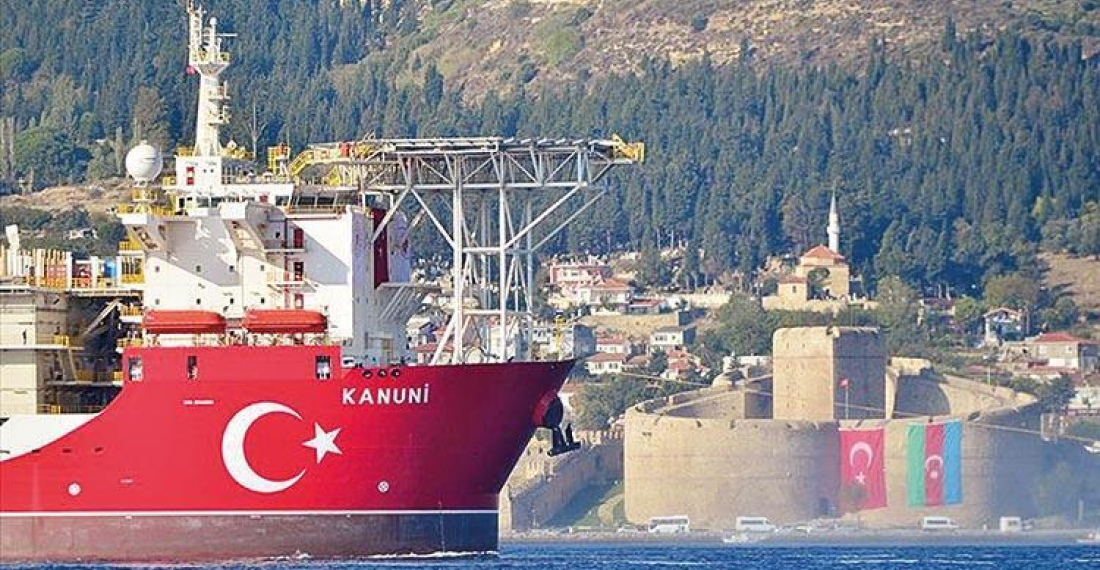Turkey hopes that newly discovered gas fields in the Black Sea will soon yield output that will help it satisfy its increasing demand for gas. In 2019, Turkey’s total gas import bill was around $12 billion.
Currently, Turkey imports most of its gas needs from Russia, Azerbaijan, Iran via pipelines. Nearly a third of the country’s gas needs are met with liquefied natural gas (LNG) supplies, mainly from Qatar, Algeria, the United States and Nigeria.
The country is currently conducting further seismic analysis activities, soon to be extended to a 10,000-square-meter area in the Black Sea, Energy Minister Fatih Donmez told a group of journalists on March 3. “We are aiming to drill a new exploratory well in one of the gas fields that is deemed to have potential,” Donmez said.
Deepwater seismic explorations for hydrocarbon resources in an area of 250 square kilometers in Turkey's Black Sea maritime zone have been completed, he added. “The 3D seismic exploration activities are currently underway,” he said, adding that the upward or downward revisions for the previously announced 405 billion cubic meters of natural gas reserve in the Sakarya Gas Field were possible.
In 2020, Turkey’s first national drillship, Fatih, discovered the country’s largest natural gas which also marked the biggest offshore gas discovery worldwide in that year.
Turkey’s third drillship, Kanuni, will join drilling activities next month after completing its preparations at the Filyos Port, the minister said.
Productiuon from the Black Sea field is expected to peak in 2028 when it will enter its plateau phase, and Turkey’s natural gas production will reach almost 15 bcm annually. This will allow the country to meet a substantial amount of its gas needs.






